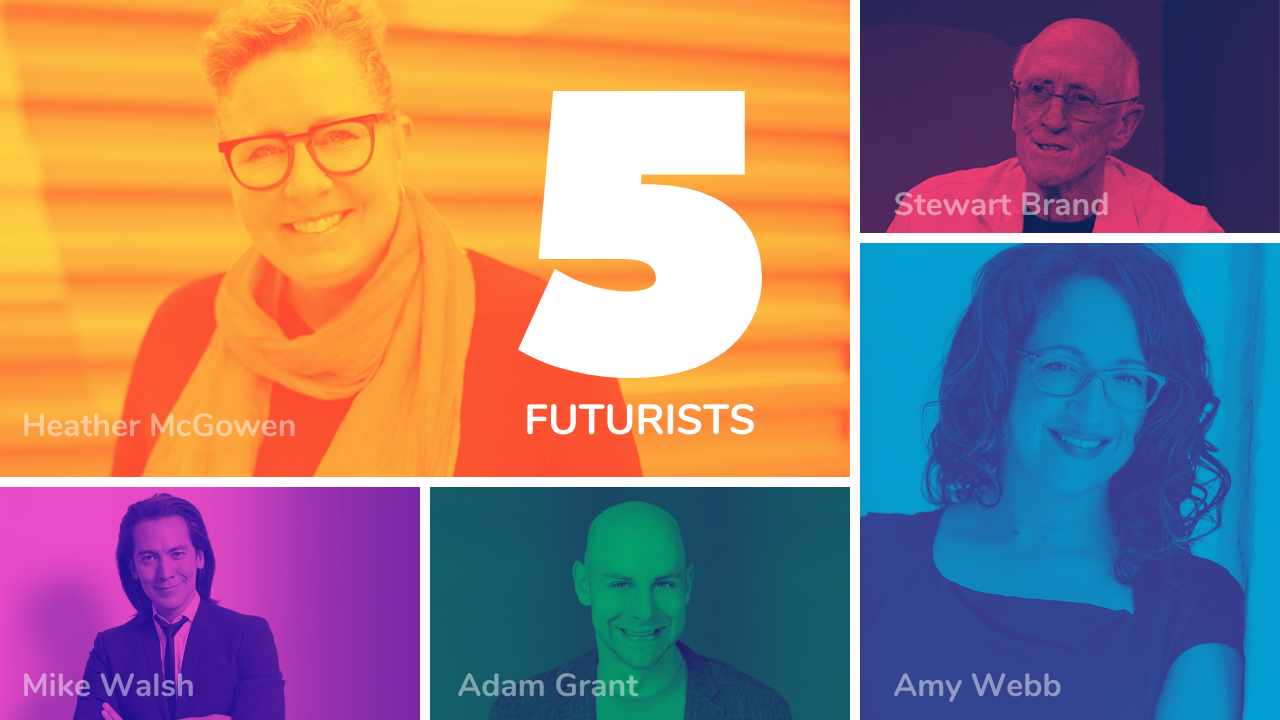
What if you could learn from the best minds in futurism, who have already faced and overcome the challenges of organizational change you are facing now? Here are 5 (+1 bonus) insights that you can tap into and use to get a grip on the future of your organization.
1. Adam M. Grant - Create a Challenge Network
“We learn more from people who challenge our thought process than those who affirm our conclusions. Strong leaders engage their critics and make themselves stronger. Weak leaders silence their critics and make themselves weaker. This reaction isn’t limited to people in power. Although we might be on board with the principle, in practice, we often miss out on the value of a challenge network.”
Why on earth should you create a challenge network? Because unchallenged assumptions cause the downfall of organizations. Think Kodak: they kept believing that digitization would take another generation.
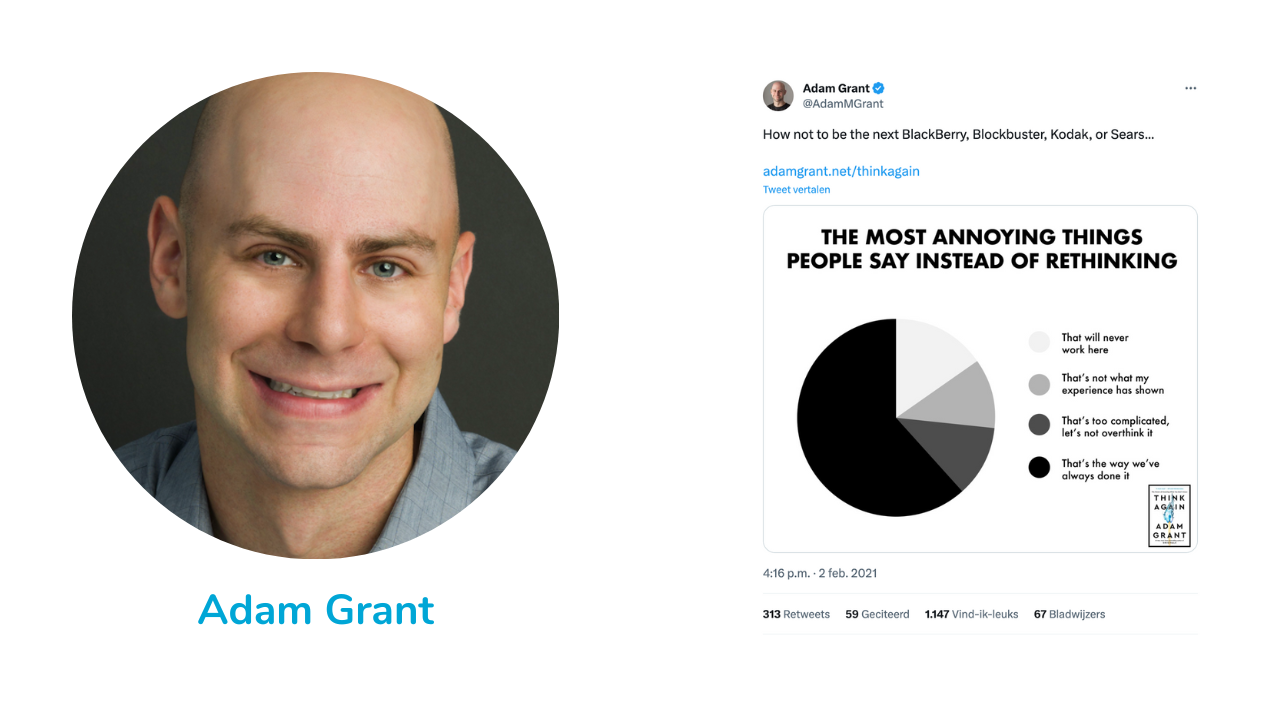
Adam M. Grant is an accomplished American author in popular science and a professor at the prestigious Wharton School of the University of Pennsylvania. His area of expertise lies in organizational psychology.
Read more by Adam: Think Again: The Power of Knowing What You Don't Know
2. Amy Webb - See Disruptive Technologies in Context
"We misidentify trends (or miss them altogether) when we focus exclusively on technology, when the other factors in play are seemingly unrelated, or when the adjacent sources of change aren’t part of a compelling narrative. Forecasting the future doesn’t always yield headline-worthy results, even if certain trends promise to change how we live on this planet."
Not considering context is such a common error that it has its own bias: focalism, AKA focusing illusion (the opposite of contextual bias). Examples of overfocused future scenarios are those of Shell that predicted energy consumption wrongly because they did not factor in the pandemic. Again Kodak, that finally went into digital cameras and crumbled again when smartphones took over.

Amy Lynn Webb, an American futurist, author, and CEO and founder of the Future Today Institute, holds the position of adjunct assistant professor at the Stern School of Business at New York University. She also serves as a nonresident senior fellow at the Atlantic Council and was a Visiting Nieman Fellow at Harvard University during 2014-15.
Read more by Amy: The Signals Are Talking: Why Today's Fringe Is Tomorrow's Mainstream
3. Stewart Brand - Differentiate Between Slow and Fast Changing Parts
"I propose six significant levels of pace and size in the working structure of a robust and adaptable civilization. [...] In a healthy society each level is allowed to operate at its own pace, safely sustained by the slower levels below and kept invigorated by the livelier levels above."
Go ahead and ask me! Why should you complicate matters by unraveling the different speeds of the trends and developments that impact your organization now and later? Well, it clarifies that nature, culture, and governance stabilize the disruptive innovations in the top layers.
You can use the same idea for the protection of your organization. Its pace layers are a steady core purpose, with a flexible longer-term strategy, shorter-term sales and marketing initiatives, and the highest change in the innovation layer.
Each layer requires different skill sets and people. For example, the outer layer should comprise individuals from inside and outside the organization who thrive on change. Instead, the inner layer is populated with the keepers of the core.
When you assess your organization like this, you'll get new ideas for making it more resilient.
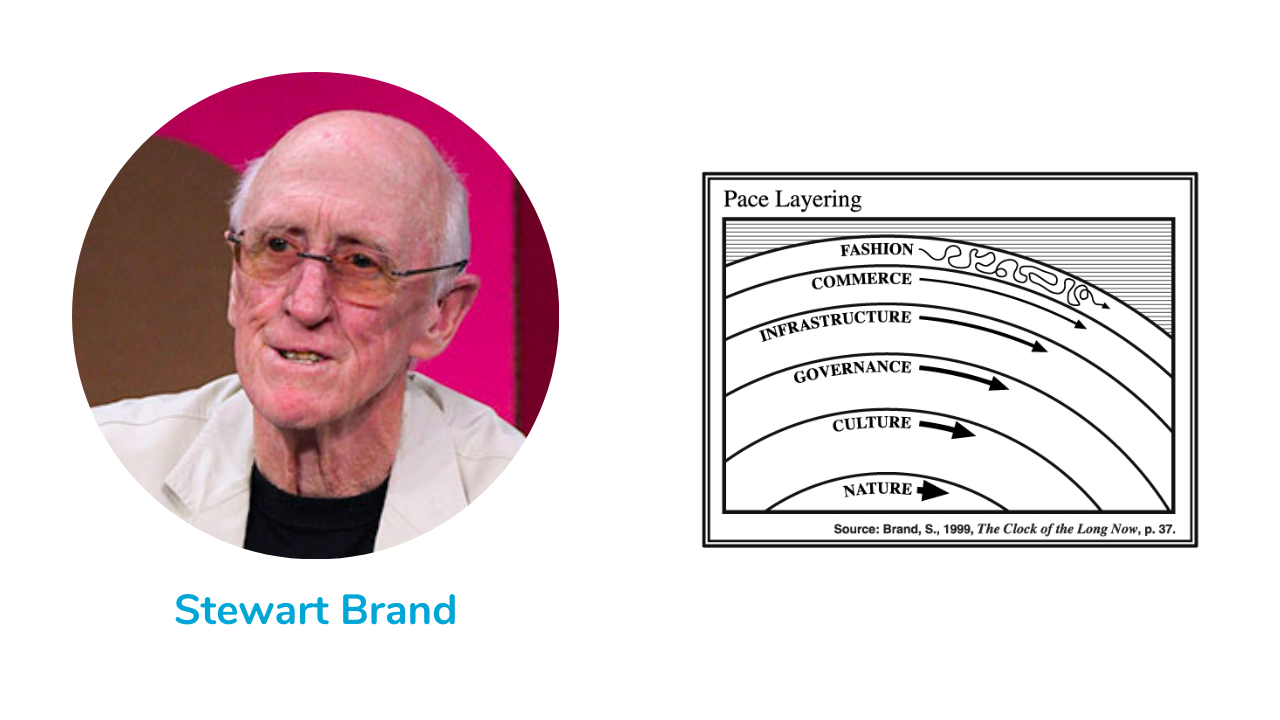
Stewart Brand is an American writer, best known as the Whole Earth Catalog editor. He founded several organizations, including The WELL, the Global Business Network, and the Long Now Foundation. He authored several books, most recently Whole Earth Discipline: An Ecopragmatist Manifesto.
Read more by Stewart: The Clock Of The Long Now: Time and Responsibility
4. Heather McGowen - Show that You Not-Know
"Said differently, in the modern work environment, the cycle of learning, unlearning, and learning again demands that workers embrace their agency to act and work in ways that make them more creative, more productive, and more fully human. Workplace leaders must risk the vulnerability to admit they don't have all the answers and willingness to discover together with their teams. The honest and fearless embrace of your own vulnerability builds the psychological safety that enables your team to be active, adaptive learners."
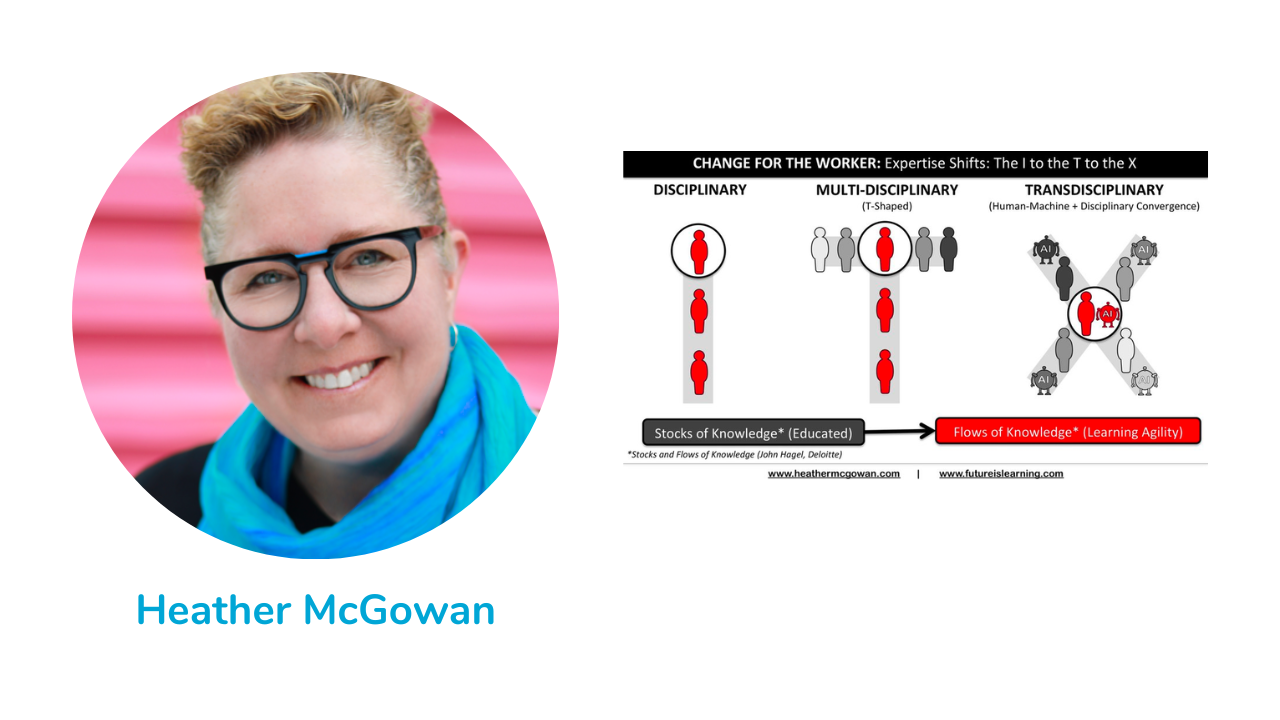
Heather McGowan is a renowned author and consultant, and is also a co-founder of Work to Learn. In 2017, she was recognized as the top global education influencer on LinkedIn. McGowan is highly regarded as a thought leader in international circles, helping individuals adapt to the fast-paced and disruptive changes in education, work, and society.
Read more by Heather: The Empathy Advantage: Leading the Empowered Workforce)
5. Mike Walsh - Create a Causal Map
"Computers lack common sense. We can train machine learning algorithms to spot patterns and detect signals, but to date we haven’t been able to give them the ability to reason from context."
"Aristotle defined a first principle as “the first basis from which a thing is known.” First principles thinking is therefore the art of breaking a problem down to the fundamental parts that you know are true and building up from there."
Mike refers, like Amy, to the importance of context for decision-making and traces possible disruptions to their contextual origins. This helps him to differentiate between a stable, static basis and a faster-evolving technology, as Stewart does. He will build business models on an unchanging basis and use the faster-changing trends to inform marketing and product development.
For a step-by-step, follow this link
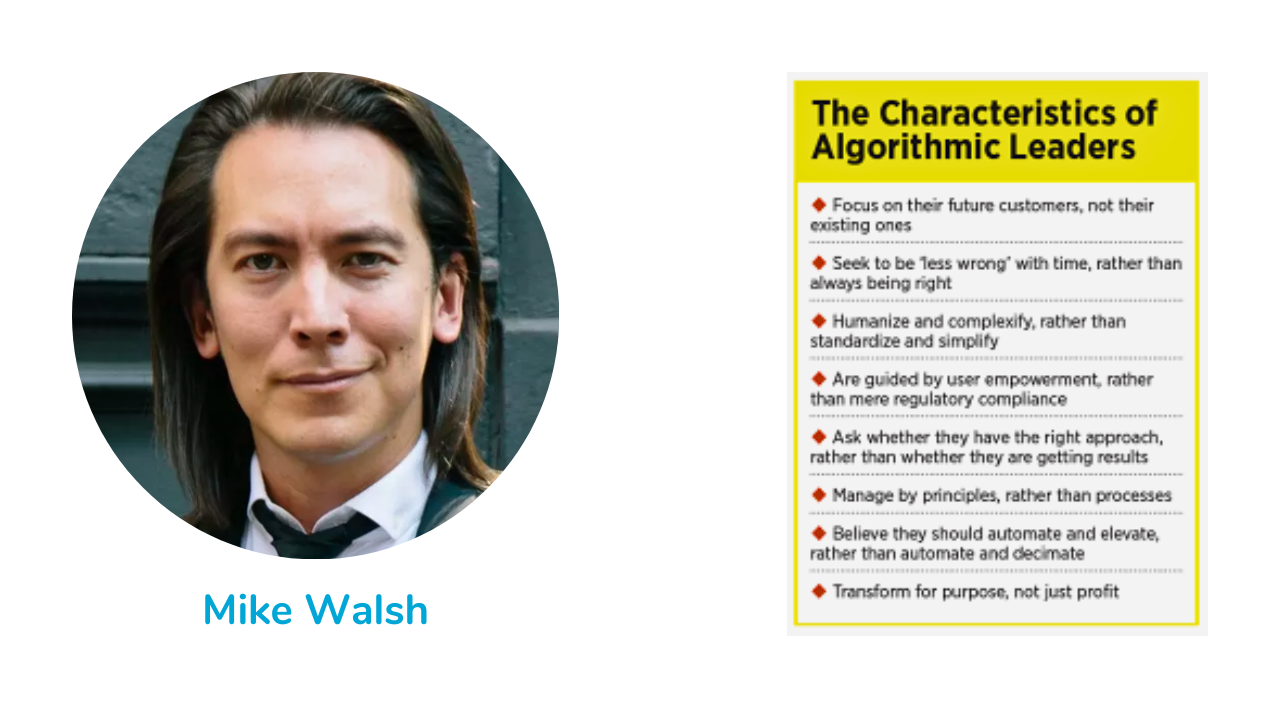
Mike Walsh is the CEO of Tomorrow, a world-renowned consultancy that specializes in designing companies that can thrive in the modern age of disruptive technological change.
Read more by Mike: The Algorithmic Leader: How to Be Smart When Machines Are Smarter Than You
Bonus: Alvin Toffler - Read or Watch SciFi
"Science fiction is held in low regard as a branch of literature, and perhaps it deserves this critical contempt. But if we view it as a kind of sociology of the future, rather than as literature, science fiction has immense value as a mind-stretching force for the creation of the habit of anticipation. Our children should be studying Arthur C. Clarke, William Tenn, Robert Heinlein, Ray Bradbury and Robert Sheckley, not because these writers can tell them about rocket ships and time machines but, more important, because they can lead young minds through an imaginative exploration of the jungle of political, social, psychological, and ethical issues that will confront these children as adults."
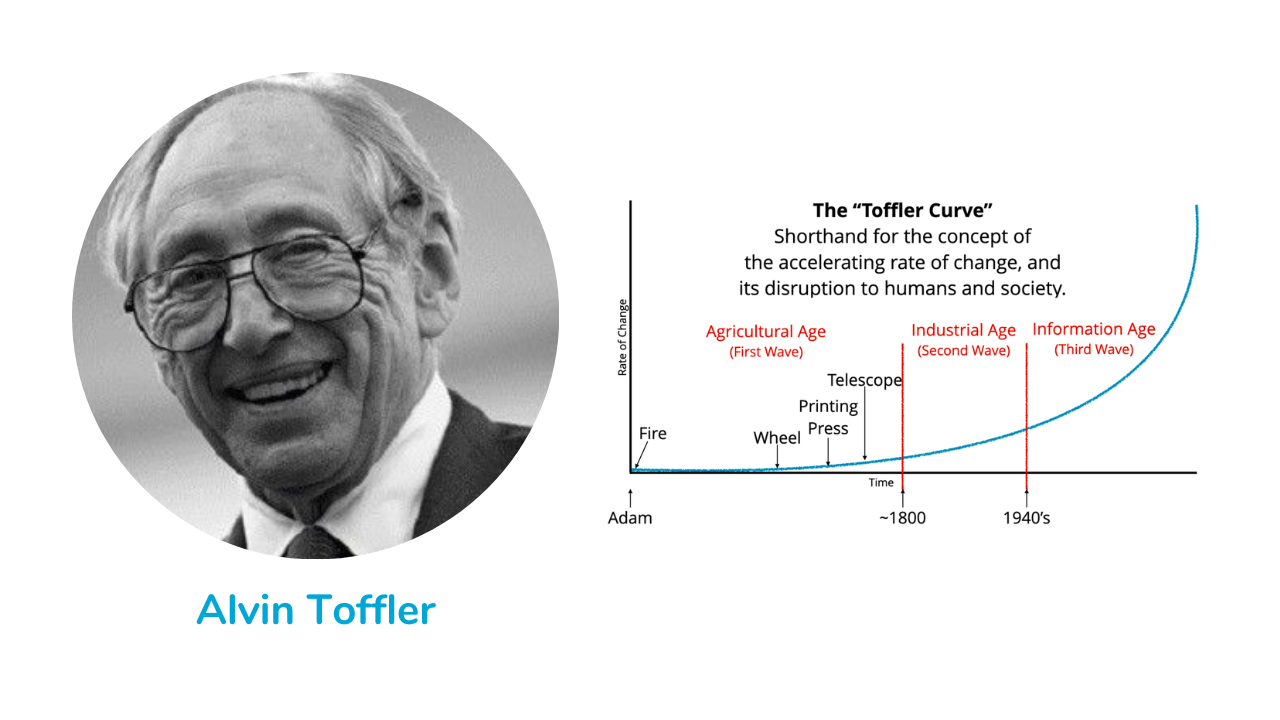
Alvin Eugene Toffler was a renowned American author, futurist, and entrepreneur renowned for his extensive literature on modern technologies. His works extensively cover the digital and communication revolutions, with a particular emphasis on their global cultural impact. He is widely regarded as one of the most exceptional futurists in the world.
Read more by Alvin: Future Shock
Fresh Foresight Insights Directly in Your Inbox
Join Barbara's mailing list to receive her latest Canary and updates about her research into managerial foresight and blind spots.
I hate SPAM too, so know that I won't spam or have others spam you!

